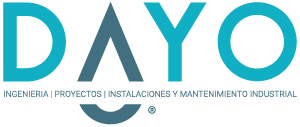PURIFICATION AND RECYCLING OF TEXTILE INDUSTRY WASTEWATER
Characteristics of waste from the textile industry
- The operations carried out in the textile industry are weaving, dyeing, printing and finishing;
- Each of these processes has a different type of discharge, and a prior homogenization is also required, before its treatment;
- As organic substances derived from impurities from fibers and chemical products used in its production;
- The water discharges are generally loaded with organic matter, conductivity, suspension material and detergents;
- In addition to corants it produces water with a high content of heat, depending on the nature of the heat, it is difficult to biodegrade by biological or chemical methods;
- Or use of autoclaves with high temperatures, typically 40 ° C, hair that is necessary to reduce it to be unloaded;
- It can have pH values, especially in mercerization processes.
Existing treatment processes
According to the degree of purification of the water, in accordance with the discharge regulations of each country,
the most common processes used are the following:
- Physico-chemical;
- Biological, with active fungi;
- Biological trickling filter;
- Ozonization as a bleaching treatment;
- All these processes can be used alone or in combination, to obtain the results imposed by law;
- Excess temperature tends to decrease with the time spent in the tanks, depending on the ventilation system and the thermal losses of the system.
The processes used by our company
According to the degree of purification of the water, in accordance with the discharge regulations of each country,
the most common processes used are the following:
- Our company has worked for years in the textile industry, applying biological treatment systems together with ultrafiltration membranes (bio-reaction membrane) and chemical systems for color reduction;
- If the color persists, ozone is used with final treatment, disinfectant and water bleach, as well as sodium hypochlorite, depending on the nature of the colorants.
Advantages of using recycled water
Due to the high quality obtained in wastewater, these allow its reuse in multiple applications and have the following advantages:
- Reduction of construction and maintenance costs, since the facilities are smaller, although they produce less fresh water;
- Groundwater increases by reducing well consumption;
- It does not depend on weather issues.




